Introduction
Following on from our exploration of kaupapa, we are considering accountability and trust.
Understanding intergenerational wellbeing and acting as kaitiaki of resources and assets, requires placing attention on how business activities, outputs, and outcomes could be measured by their contribution to wellbeing, rather than GDP.
Our high level pātai are:
- How are organisations accountable to the many layers of people who benefit from, or are impacted by, their activities?
- How do organisations communicate the impacts of their activities?
- How does an organisation’s kaupapa influence how they make decisions around accountability and stakeholder relationships?
- Where does intergenerational wellbeing fit in?
We’re interested in accountability beyond accounting standards and financial bottom lines, and would like to look at the different ways in which organisations are held to account by employees, investors, consumers, communities, and other stakeholders. Living Wage, social accounting, corporate social responsibility frameworks, social licence to operate, and social impact are all ways organisations can approach accountability.
However, accountability is often seen as something that is only relevant when something goes wrong and who takes the blame. Rather accountability in organisations is about creating a culture created where people are willing to take responsibility for their actions. This requires the vulnerability to own up to mistakes and accepting the consequences. A vital outcome of accountability is trust, and the key to developing reciprocal trust is courageous leadership.
One-way information flows are no longer viable in an information heavy age; transparency and accountability are crucial. Trust and accountability can be consciously curated within an organisation’s culture, and it flows on to every relationship and transaction, whether with a customer or client, supplier, investor, or employee.
Waiho i te toipoto, kaua i te toiroa
Let us keep close together, not wide apart
Consideration of accountability and trust also means businesses valuing the social contract in the communities they operate in, and being transparent about the impact of their activities. The social licence of organisations, which can take years to foster, is reliant on transparency, trust, and accountability. Reputations can be ruined in one bad PR move. Failure to sustain social licence is an enduring business risk.
The 2020 Edelman Trust Barometer report showed record levels of distrust in institutions, amid a growing sense of inequity and inequality. The report, compiled before COVID-19, noted the importance of trust for business – ethical drivers, such as integrity, dependability, and purpose, drove 76 percent of the trust capital of business with consumers and investors, while competence accounted for only 24 percent. Additionally, 73 percent believed businesses could take actions that both increase profits and improve conditions for stakeholders and communities. Trust is more important than ever.
We will be delving into accountability and trust with contributions from thought leaders around Aotearoa in a webinar, podcast kōrero, and a guest website article.
Our thought leaders on accountability and trust
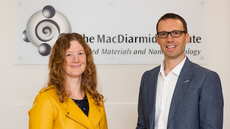
Podcast – MacDiarmid Institute Co-Directors
Associate Professor Nicola Gaston is Co-Director of the MacDiarmid Institute and an Associate Professor in the Department of Physics at The University of Auckland. Nicola Gaston was a Senior Lecturer in the School of Chemical and Physical Sciences at Victoria University of Wellington. She was previously a Senior Lecturer in the School of Chemical and Physical Sciences at Victoria University of Wellington, and a Principal Research Scientist at Industrial Research Ltd. Nicola is interested in understanding the development and variation of physical properties in materials as a function of size, from few atom clusters to large nanoparticles and the bulk.
Professor Justin Hodgkiss is Co-Director of the MacDiarmid Institute, and a Professor in Physical Chemistry at Victoria University of Wellington. Justin was a Fulbright Scholar at the Massachusetts Institute of Technology in 2006, a Rutherford Discovery Fellow from 2012-2016, and Deputy Director of the MacDiarmid Institute from 2015-2018. Justin’s research program is focused on the development of molecular electronic materials for low-cost printable electronics – primarily solar cells. A second research focus is on DNA aptasensors. Through collaboration with biologists, Justin’s group are creating ultrasensitive and highly specific colorimetric and electronic sensors for biological targets, including hormones.
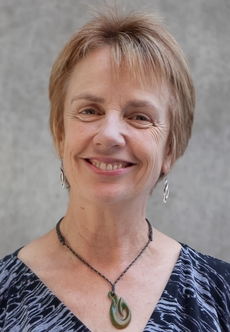
Webinar – Kate Frykberg
Kate is an independent philanthropy consultant and a blogger on philanthropy and community issues. She also holds a number of governance roles, including co-founding and chairing Te Muka Rau Trust, and serving on the Ngāi Tahu Fund committee and the board of the Innovation Unit Australia New Zealand.
Kate’s previous roles include Executive Director of the Todd Foundation and Chair of Philanthropy NZ. Her background prior to working in philanthropy was in IT and entrepreneurship; highlights include co-founding one of NZ's first Internet Development companies, receiving the ASB Business Woman of the Year award and being awarded the NZ Order of Merit. Kate lives in Wellington with her husband, the youngest of their three sons, a dog, a cat and several chickens.
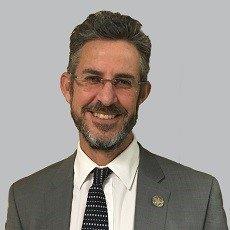
Webinar – Craig Fisher
Craig is a Consultant with RSM specialising in governance, strategy, audit and assurance advice, and with a strong interest in the sustainability of impactful organisations. He has 30 years of public accountancy experience and up until December 2018 was one of six Audit Partners at RSM Hayes Audit and the former Chairman of the RSM New Zealand group. His audit client experience as a Licenced, Statutory, and Approved Auditor of the Auditor General included issuers, private companies, public sector entities and a wide range of charities and not-for-profit organisations.
Craig is a recognised specialist in the not-for-profit and charitable sector, has a strong interest in good governance, and holds a range of governance roles. He is an independent Councillor of the Auckland District Law Society, independent Risk Assurance and Audit Committee Chair of Ngāti Whātua Ōrākei, Chairman of the External Reporting Advisory Panel of the External Reporting Board, Chairman of the Fred Hollows Foundation New Zealand, and a trustee of the Sustainable Coastlines Charitable Trust. In addition, he serves as an Advisory Board member of the Perpetual Guardian Foundation, is a Chartered Accountants Australia and New Zealand (CA ANZ) Charities and NFP Advisory Group member, is on the committee of the CA ANZ Auckland NFP Special Interest Group, is a Massey University School of Accountancy Advisory Board member, and a member of DIA Charities Services’ Sector User Group.
He is also a late onset surfer and grows macadamia nuts amongst other passion pursuits.
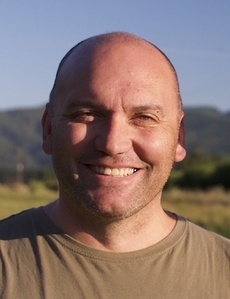
Webinar – Manu Caddie
Manu Caddie (Ngāti Pūkenga, Ngāti Hauā, Tongan, Pākehā) lives near Ruatorea on the East Coast. He has a background in youth and community development work, evaluation, and social enterprise. He has been a Contracts Manager for the Ministry of Social Development, a short-term contractor with The World Bank, an elected representative in local government, and a Board Member on the NZ Council for International Development. Most recently, he is co-founder of Rua Bioscience, a pharmaceutical company that successfully listed on the NZX in October 2020.
Manu has a passion for community-led development and participatory processes, and he is interested in issues of accountability, trust, and transparency in decision-making at all levels of society.
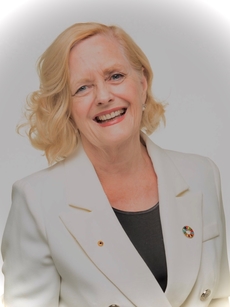
Guest article – Jane Diplock
Jane Diplock AO is an experienced international company director and considered an expert and thought leader on governance, strategy, regulation and reporting. For over 30 years she has chaired and served on boards of public and private companies and not for profit organisations. Her executive career included senior positions in government, heading up several government departments, in investment banking with Westpac's merchant and institutional banking arms, and in regulation. She chaired the governing board of the International Organisation of Securities Commissions (IOSCO) for seven years, and the New Zealand Securities Commission for nine. She has had wide experience in global and local standard setting and the implementation and enforcement of global standards.
Since her retirement from executive life in 2011 she has chosen to chair and serve on the boards and committees of a number of global bodies and companies, including Singapore Exchange Limited, Abu Dhabi Global Market Regulatory Committee, the Public Interest Oversight Board, International Integrated Reporting Council Board, and Australian Financial Services Group, as well as on international advisory Boards to the Chinese and Indian regulators.
Her current focus is on sustainability, the United Nations Sustainable Development Goals, digitalisation, and non-financial reporting standards. Her current governance positions include directorships on international listed, private, not for profit, and government boards.
In 2003 she was awarded the Honour of Officer of the Order of Australia (AO) for “service to business and commerce, to public administration, particularly in the areas of education and training, and to the community through a range of social justice, health, educational and cultural organisations”.
Webinar recording - accountability and trust
Recorded 2 December 2020, our webinar on accountability and trust explores how we, as individuals and organisations hold ourselves accountable to the communities we operate in, and how we build trust with our stakeholders.
Panelists include:
- Kate Frykberg - Independent philanthropy consultant
- Manu Caddie - Rua Bioscience
- Craig Fisher - RSM New Zealand
Podcast with the MacDiarmid Institute Co-Directors
As part of BERL’s pro-bono mahi, we are taking a deeper look at how kaupapa, accountability and trust, and value can be more explicitly communicated, and understood.
We kōrero with co-directors of the MacDiarmid Institute for Advanced Materials and Nanotechnology, Nicola Gaston and Justin Hodgkiss, on accountability and trust from the point of view of a Centre of Research Excellence. Nicola Gaston is an associate professor at the University of Auckland and Justin Hodgkiss is a professor in Physical Chemistry at Victoria University Wellington.
Our kōrero explores what accountability means to Justin and Nicola in their roles, and practical steps the co-directors use to foster accountability and trust within the institute and with the general public. We also discuss the unique need that scientists have to strike the right balance between over- and under-claiming the applications and implications of their research.
Integrated Reporting – Building trust and demonstrating accountability
Guest article with Jane Diplock
Everything that happens, happens at the only possible time it can happen, and it is always at exactly the right time. Wu Wei, I Ching Wisdom: More Guidance from the Book of Answers
2021 promises to be a very exciting year! Now and again, there is a moment in time when a number of ideas, forces and imaginations come together to produce some remarkable results. In relation to accountability and trust, hopefully 2021 will be that time. We all hope that over this coming year, the COVID-19 pandemic will be tamed by a vaccine and thousands of lives will be saved. The global economy will recover, and the world will look optimistically towards a more equal, and socially and environmentally responsible, global economic recovery.
The United Nations Sustainable Development Goals (UNSDGs) provide a pathway for this recovery, and it is now time that they are embraced not only by governments but also by corporations. New Zealand’s world first Wellbeing budget provided leadership to governments around the world to look beyond GDP as the only measure of the success of the budgetary process. The requirement for climate change reporting again sees New Zealand as a world leader! Perhaps we here in New Zealand can make progress in encouraging businesses to reflect on their impact in implementing the UNSDGs as well?
Business needs to consider broader measures of success
Forward looking businesses are focusing holistically on their business models and giving serious consideration to the risks and opportunities that climate change and the other sustainable development goals present. They understand that their social licence to operate increasingly depends on their response to these issues.
Traditional business models are being challenges by two concurrent forces; climate change and the fourth industrial revolution. The data revolution has transformed how we do business, and the relationship with consumers, employees, shareholders, and other stakeholders. The use and misuse of data, who owns it, and how it is used or monetised, is becoming increasingly important. Technology and business are intertwined.
At the same time, balance sheet considerations are increasingly influenced or determined by intangibles and non- or pre-financial information, relating to environmental, social, or other measures. These measures are currently reported in a number of ways, under standards or frameworks which are not readily comparable.
Social licence to operate is increasingly important
Increasingly, trust and accountability are being demanded not only by shareholders, but by other stakeholders as well. Some may see the interests of stakeholders as being in conflict with those of shareholders. However, it is clear that this dichotomy is between the interests of stakeholders and those of shareholders is a false one. Stakeholders – as consumers, employees, service providers, suppliers, and neighbours – are looking to companies to play their part in the communities they serve.
Around the world the pension investment community is flexing its muscles, requiring many company boards to align their climate change targets, along with their employee fairness targets, including gender equity, with their remuneration strategy. These demands are underlining the issues forming trust and accountability in companies, and are requiring boards to take behaviour and culture very seriously indeed.
A cautionary tale
A foreshadowing of this occurred recently in Australia.
In May of this year a series of loud explosions resounded in the remote Pilbara area of Western Australia. These explosions would unsettle the complacency of many company directors in Australia and around the world.
The mining which required these explosions was anticipated by the mining giant Rio Tinto to deliver $135 million to its bottom line. In fact it caused an international and local outcry, revealing how through flawed decision making a company can severely damage its social licence to operate, and bring about costly reputational damage.
The explosions, which were lawful under the relevant Australian law, destroyed the 46,000 year old Juukan Gorge heritage site, caves containing an irreplaceable archaeological site and one of only a handful of such sites, sacred to Aboriginal people, existing in Australia.
The subsequent Northern Australian Parliamentary Committee found that the evidence received by the Committee had made clear that the internal culture at Rio Tinto was a significant factor in the destruction of these sites.
The fallout was severe. Ultimately, the London based CEO, the iron ore Chief Executive, and the Head of Corporate Affairs all left the company.
Many in the director community were stunned that an action that was legal could have been so detrimental to the company. Stewardship was being rethought. Concerns about culture and unanticipated risks became seen as vitally important business issues.
As more information about this event was revealed, several large superannuation funds, including some representing miners, spoke out condemning the action. Many investors, particularly superannuation funds hold long-term horizons. The investor community is aware that poor corporate behaviour or culture of companies they invest in, will affect the trust their own investors have in the funds they manage. They understand that issues of climate change, sustainability, inequality, and other societal concerns affect the business models and viability of their investment targets, and they listen to their investor community, who are stakeholders in the communities they live and work in.
Integrated Reporting is leading the way
The International Integrated Reporting Council (IIRC) has been arguing this over the past decade, as it consulted on and developed a globally agreed framework to enable consistency in the reporting of integrated thinking by companies.
Recently I had the pleasure of joining the panel judging New Zealand Integrated Reports. It is very encouraging to see that so many New Zealand companies have adopted Integrated Reporting, and that world class Integrated Reports are being produced by companies, such as Sanford, and entities like Auckland City Council. Many included their contributions to the UNSDGs as well.
Nevertheless, the current fragmentation of options for non-financial reporting creates a challenge for reporting. The development of global accounting standards has been in place under International Financial Reporting Standards (IFRS) for over 20 years and for US Generally Accepted Accounting Principles (GAAP) even longer, and consistency and comparability has been able to be achieved between financial reporting entities. Digitised taxonomies have been developed for each to allow digital comparison and comparability.
Up to now, no such consistency has been achieved in non-financial reporting. Comparability and assessment between sustainability reports has been difficult, and the reports themselves, not readily assurable. The world has been calling out for some resolution of this problem. The World Economic Forum, stakeholder groups, NGOs, and others have all outlined the need for a comprehensive reporting system.
Fortunately there have been some recent exciting developments!
The Impact Management Project – Building a global consensus
One of the most significant has been the extremely timely and useful work of IMP, the Impact Management Project. The IMP provides a forum for building global consensus on how to measure, manage, and report impacts on sustainability. It is relevant for enterprises and investors who want to manage environmental, social, and governance (ESG) risks, as well as those who also want to contribute positively to global goals.
As part of these efforts, the IMP facilitates a structured network of 16 standard-setting organisations that, through their specific and complementary expertise, are coordinating efforts to provide complete standards for measurement, management, and reporting of impacts on sustainability.
Five of these Structured Network Members – whose frameworks, standards and platforms guide most of the sustainability and integrated reporting in the world today – recently announced a shared vision of what is needed for progress towards comprehensive reporting, and the intent to work together to achieve it. This effort is facilitated by the IMP, World Economic Forum, and Deloitte.
The paper, which was published on 11th September this year, outlines a vision for a comprehensive corporate reporting system. It calls for a system of reporting non-financial data, which incorporates disclosures that reflect an organisation’s significant impacts on the economy and people, and those that are material for value creation. It suggests that Integrated Reporting be a roof over both financial and non-financial reporting, linking them through the integrated thinking of the entity, and articulated in an Integrated Report.
Wider calls for transparent sustainability performance measurement and disclosure
This was quickly followed by an open letter by the participating organisations to IOSCO, the international organisation of securities market regulators, noting the growing calls from market participants and other stakeholders for transparent measurement and disclosure of information about sustainability performance. It noted that as the global pandemic has shown, sustainability impacts can rapidly become material for companies and their investors.
IOSCO responded that it is now almost universally accepted that failure to integrate environmental, social, and governance factors into investment decisions constitutes a failure to meet fiduciary duty to clients and beneficiaries. They noted the confusion as to which standards issuers should adopt, and noted that they had a board level task force focusing on these issues.
Parallel to this exchange, the IFRS Trustees’ consultation paper on Non-Financial Reporting was issued, canvassing whether here is a need for global sustainability standards, whether the IFRS Foundation should play a role, and if so, what that role should be.
All this activity by so many global bodies, all identifying the problem, and with general agreement on the urgency and imperative, reflects the urgency expressed by the TCFD ( Task Force on Climate- related Disclosures) and others about the impending climate change crisis.
As well as facilitating the Structured Network, the IMP has set up a working group in which the data revolution is being addressed. I have the honour of Chairing the IMP Non-Financial Digitisation Working Group, which is convening standard-setting organisations and experts in digitisation to assess the important relationship between non-financial frameworks, standards, and structured information, which could be enabled through a global registry of digital taxonomies.
We all await with anticipation, the outcome of this Working Group, and the results of the IFRS Trustees’ Discussion paper early next year. So much is in play at the moment!
The business sector has a crucial part to play in trust and accountability
The existential crisis of climate change facing the world today, and the challenges of implementing the UN Sustainable Development Goals require even greater global cooperation and collaboration than ever before. Governments, citizens, consumers, employees, service providers, suppliers, regulators, standard setters, preparers, businesses, and investors all increasingly expect financial and non-financial information to be:
- Available, accessible, digitised, comparable, assurable, trustworthy, and clear
- To build trust, and to enable accountability, integrated thinking, and reporting
- And most importantly, to inform decision making.
We all have a part to play in achieving a trusted, accountable, business sector, thinking in a holistic integrated way reporting both financial and non-financial information to the benefit of, stakeholders, shareholders, and the communities from whom they receive their licence to operate.